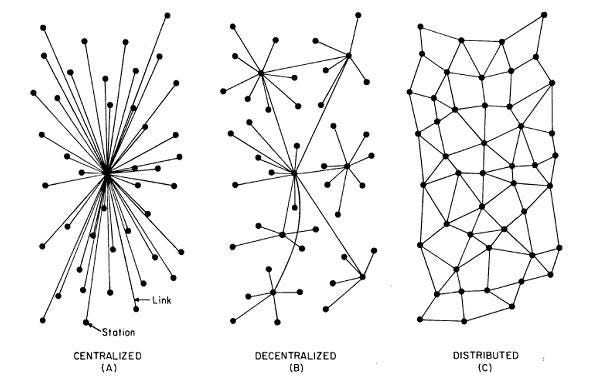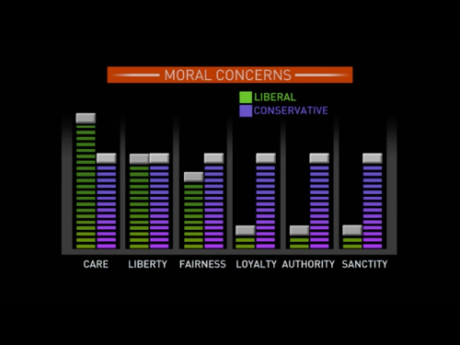I choose to define corruption broadly to mean any dishonest, unethical, or sometimes ethically neutral act by someone in a position of authority done for personal gain to the detriment of others.
The short version
- Corruption exists because everybody cheats a little bit and justifies it
- Our ethical choices are governed by social pressures
- The size of our social circle has an upper limit (Dunbar’s number)
- Systems relying on human trust do not scale past Dunbar’s number
- Trustless systems can replace current systems that rely on human trust
The long version
I think almost all society-level problems stem from corruption. I’m talking about the big hitters like famine, war, poverty, and social injustice. It’s been a problem since the beginning of human civilization and it seems like it will always be with us. Is it human nature? Are we doomed to be stuck with this and suffer it’s consequences forever? If not, what do we about it?
Most cheating is done by good meaning, regular people but the aggregate fucks us massively
First, we have to expel the myth that corruption only happens because of bad people doing evil things. Corruption exists because everybody cheats a little bit and then justifies the cheating to themselves–this is a feature of human psychology. Ask yourself, do you think you are a good person who generally does the right things? Next, have you lied, cheated or stolen in the past 6 months? If you said yes to both, how do you justify this juxtaposition?
Common justifications are things like it’s so small, no one will even miss it, or I’ve worked so hard and I deserve it, or everyone else is doing it, or a million others. While some people cheat massively, they are actually in a minuscule minority and don’t actually cost us that much in total (with notable exceptions like Bernie Madoff) but what really kills us as a society is the aggregate of all the good people making small ethical failures, coupled with the fact that corruption breeds more corruption and makes it easier to justify further corruption (e.g. everyone else is doing it). Most cheating really just boils down to a conflict of interest and you convince yourself that you are justified in acting in your own interest. People in positions of authority are not immune to these conflicts.
Our ethical choices are mostly governed by social pressures from our peers
Think about how human social structure has been for most of history. Civilizations is maybe 20,000 years old out of 200,00-300,000 years for anatomically modern humans. Most of human life was characterized by small nomadic tribes and clans who enforced rules and ethical behavior through social pressure. Social pressure is really powerful and behavior is enforced by positive and negative reinforcement and shunning, as well as your own incentive to appear of high status. Take Slab City for example, which is basically an ad hoc hippie collective where laws and social norms one in the same. This structure works in smallish groups but we run into problems when we try to extrapolate this organization to larger numbers.
Our social circle is limited by Dunbar’s number
Another characteristic of these tribes and clans is that they were typically smaller than 150 or so in number. The upper limit on the size of these tribes is called Dunbar’s number. Although the number varies from individual to individual, it is roughly the upper limit on the number of people that belong to a community and know every single person individually. It can be rephrased as a practical limit on the size of your social circle. Other primates in captivity have an observable upper limit on group sizes as well, such that groups will splinter when individuals are added so that the group grows beyond this threshold.

Any system based on human trust does not scale well past Dunbar’s number. You can’t really expect someone you’ve never met to act in your best interest all the time because our psychology makes it easier to justify ripping off a total stranger, especially if it’s to benefit yourself or others within your social circle. Again, it boils down to a conflict of interest. To extrapolate this idea, you could argue someone in the US Congress gets more pressure from other members of Congress, lobbyists, or other insiders in the “club” than he or she would to the general public because of primate psychology.
The solution is implementing decentralized, trustless systems
So you can’t trust anybody, so what do we do about it? We replace all systems based on human based trust with trustless systems that are backed by cryptography (sometimes in tandem with reputation systems) instead of authorities. These systems don’t rely on us making ethical choices and they can be scaled to the entire population of the world. A trustless system shifts our reliance from humans, who are imperfect moral agents, to math which is verifiably true.
We have examples of these systems in various stages of implementation already. Bitcoin is the most notable example where transactions are authorized and authenticated using public key cryptography, so that you can be sure that the transaction was initiated by the actual person who has the Bitcoin, and that they actually have the Bitcoin that they claim to have. (You can steal somebody’s Bitcoin wallet, but that’s a different issue.) These transactions are written to a public ledger so that you can verify that a transaction did or did not take place. This example of taking monetary exchange and making it trustless needs to be applied to larger social systems.

A side note about centralization vs decentralization. It seems to me that centralization was necessary 20,000 years ago and was probably the only way that humans could organize themselves effectively to create civilization as we know it. Corruption and abuse of power is a downside, but there are obvious upsides like the ability to the build cities and social institutions that allowed us to grow scientifically, technologically and ethically. Centralization served a necessary purpose but it’s not the optimum way to organize a population of humans of the size we have now.
Examples of trustless systems
Three fundamental systems of society that currently rely on human trust are commerce, material production, and law, and there are people working to replace these with trustless systems. Some current examples:
1) Commerce – This one is the furthest along for current implementations with Bitcoin being a decentralized means of exchange and marketplaces like OpenBazaar acting as the platform for exchange of goods and services.
2) Decentralized production – ☭ 3D printing is still in it’s infancy, but this technology has exciting possibilities.
3) Law – Polycentric legal structures allow providers of legal systems to compete and overlap and allows participants to choose their desired legal system provider in their own dealings. Ideas around polycentric law are still being developed but we do have examples of “Startup Cities” which are special economic zones that are exempt from many local regulations and instead abide by an agreed upon legal framework that allows small companies to exist and grow without the burden and expense of being compliant with local regulations. More info here (scroll down to Startup Cities).
A prerequisite of these 3 is decentralized communication, with some implementations existing like Bitmessage. This is sort of bedrock for the previous 3 and allows people to be made aware of instances of corruption, abuse and fraud.
That’s all for now
These systems will take a long time to develop and gain adoption but it’ll be worth it. Trustless systems are the only way we can break the cycle of corruption and engineer a more fair and more scalable society.
Sources:
21 July, 2016
Categories: Uncategorized . . Author: spiralofthought . Comments: Leave a comment



